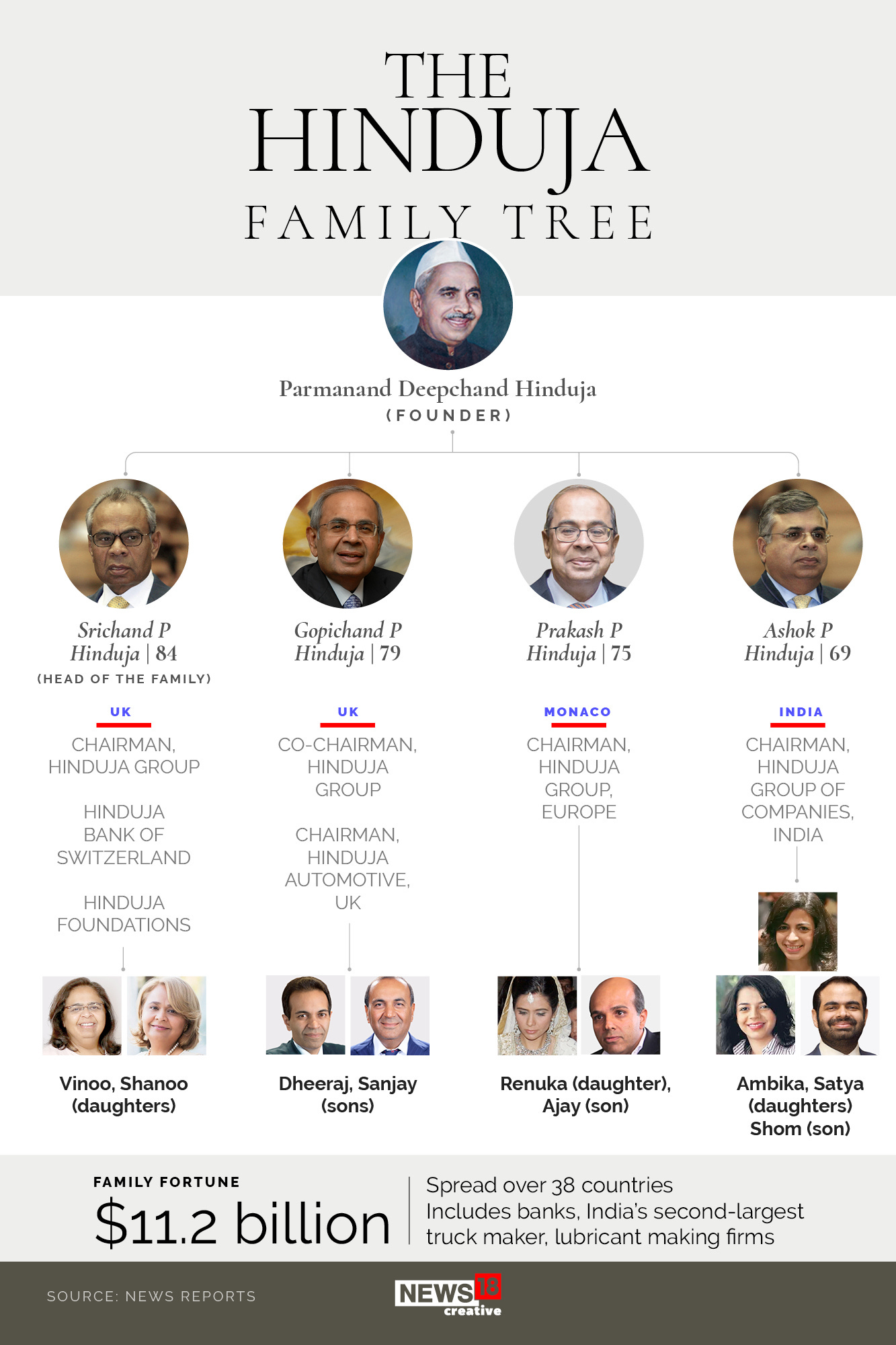
Hinduja Family Appeal: To Stay Out of Jail— for Now
Notwithstanding their conviction by a Swiss court, the four members of the Hinduja family are likely to stay out of jail pending the decision of their appeal. The prosecutor's plea for "immediate detention" was rejected by the court, noting the family's ties to Switzerland. The Indian-origin Hinduja family, one of the wealthiest in the UK with an estimated fortune of around $20 billion from their global conglomerate Hinduja Group, recently faced serious legal issues in Switzerland.
Sentencing and Charges
On Friday (21st June), a Swiss court in Geneva sentenced four members of the billionaire Hinduja family to prison terms ranging from four to four-and-a-half years. The convicted individuals are:
Prakash Hinduja, 78, and his wife Kamal, 75, who received four-and-a-half year sentences each.
Their son Ajay, 56, and his wife Namrata, 50, who were each sentenced to four years.
The court found them guilty of illegally employing and underpaying vulnerable Indian domestic staff, forcing them to work long hours with little time off, and confiscating their passports. However, the court dismissed the more severe charges of human trafficking.
Appeals Process and Legal Standing
The Hinduja family has several avenues for appeal following their conviction and sentencing by a lower court in Geneva. They have already filed an appeal at the cantonal level, the first stage in the Swiss court system, challenging the verdict that found them guilty of exploiting their domestic workers. If the decision of the cantonal appeals court is unfavourable, they can further appeal to the Swiss Federal Supreme Court, the highest judicial authority in Switzerland, which reviews the application of federal law and constitutional rights. Although it generally does not re-examine the facts established by lower courts, the Federal Supreme Court can address clear errors.
Additionally, in cases involving human rights violations, the Hinduja family may appeal to the European Court of Human Rights (ECHR) in Strasbourg, as Switzerland is bound by the European Convention on Human Rights.
Current Status and Confidence in Judicial Process
Under Swiss law, the presumption of innocence remains until a final judgment is rendered by the highest adjudicating authority, meaning the lower court's judgment and sentences are not immediately effective while under appeal. Consequently, the Hinduja family members remain free and have not been detained. Their spokesperson clarified that, contrary to some media reports, no family members are currently in effective detention. The Hindujas have expressed confidence in the Swiss judicial process, believing that "the truth will prevail" through the appeals. The final outcome of the case will depend on the decisions of the higher courts in the coming months or years.
Exploitation Details
Prosecutors highlighted the harsh conditions faced by the workers, many of whom spoke only Hindi. They were paid far below Swiss minimum wage standards, sometimes as little as 7 Swiss francs (about $8) per day for 18-hour workdays, seven days a week. It was reported that the family spent more on their pet dog than on one of their servants.
The staff were forced to sleep in the basement, sometimes on mattresses on the floor, and a "climate of fear" prevailed in the household, even as their passports were confiscated. They were paid in rupees into Indian bank accounts that they could not access while in Switzerland.
Prosecution’s Plea for Immediate Detention Rejected
Following the verdict, the prosecution sought an immediate detention order for Ajay and Namrata Hinduja, but the judge denied it, accepting the defense's argument that the family has ties to Switzerland. This decision further ensures that the family members remain free during the appeal process.
Health Concerns
Prakash and Kamal Hinduja did not attend the court proceedings, citing ill health. Kamal Hinduja is reportedly hospitalized in Monaco, with other family members by her bedside.
Broader Implications
This case has brought scrutiny to labour exploitation practices among the ultra-wealthy and highlights issues of wealth disparity, privilege, and human rights. As the appeals process continues, the final outcome will depend on the decision of Switzerland's highest court. In the meantime, the Hinduja family remains free, expressing confidence that "the truth will prevail" through the Swiss judicial process.
For many, this saga is not just about ethics but also about sordid exploitation, greed, and miserliness, with karma seemingly playing a role perhaps more effectively than the justice system. It also highlights the efficiency of the Swiss judicial system and underscores that the rich and famous will be held accountable for their actions—sooner rather than later.
If you believe this article would interest someone you know, please feel free to share it anonymously (for us), using any platform that you prefer.





